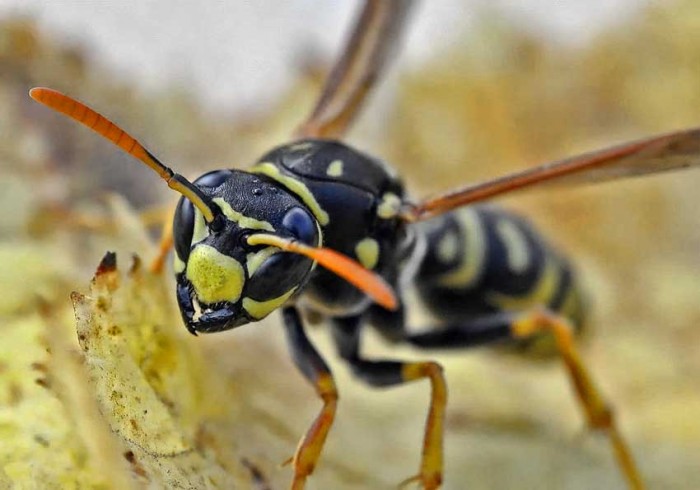A sting from a bee or a wasp is never a pleasant experience, but for a small (though not insignificant) percentage of the population it can cause a severe, potentially life threatening allergic reaction. There are around five types of stinging insect found throughout Europe and the USA whose venom can cause this allergic reaction; honey bees, wasps, yellow jackets, hornets and some ant species. Whilst most people will not suffer beyond the normal unpleasantness of the sting itself, around about one percent of the total population are at risk of serious allergic reaction.
It is actually rare for the first sting from one of these insects to cause an allergic reaction. In fact it is after this sting that the body produces protective Immunoglobulin E (IgE) antibodies to ‘protect’ against the venom. These antibodies are very specific and only triggered by the exact chemical; therefore it is likely that someone with an allergy to wasp stings is unlikely to also be allergic to bee stings – or vice versa. If, however, a bee or wasp sting does trigger a reaction the body’s immune system drastically overreacts to the proteins contained in the insect venom flooding the body with substances such as histamine.
Although insect sting allergies affect all ages they are actually more common in adults. Whilst around 1 in 150 children are at risk of a sever allergic reaction, 3 in 100 adults are allergic. These figures tend to balance themselves out in terms of risk as children are far more likely to be stung by insects than adults.
Fortunately, whilst the risk of death from a serious allergic reaction to bee or wasp stings is real, it is also relatively low. This form of reaction is known as anaphylaxis and requires emergency medical treatment. Any unusual symptoms following a sting should be cause for concern but particularly breathing difficulties, swollen tongue, hoarse throat, chest tightness, dizziness or nausea.
Initially it may be difficult to tell whether the body’s response to a sting is normal allergic and it is important to note that even if you have no previous history of allergic reaction it can still happen. The severity of a reaction can vary and stings can be classified into one the following types:
- Normal reaction – pain, swelling and redness around the site of the sting.
- Large local reaction – swelling extends beyond the site of the sting. This may cause an entire limb to swell up and usually occurs 2 to 3 days after the sting.
- Mild systemic reaction – swelling and hives may occur in areas of the body some distance from the sting site.
In younger children this usually does not mean anything but in older children and adults in is considered a risk factor for more serious future reactions. - Severe systemic reaction (Anaphylaxis) – the body severely overreacts to the sting releasing chemicals into the blood which affect the whole body including the breathing and cardiovascular systems.
In general the prevention is the best medicine and if you believe you are at risk from insect sting allergy there are ways to minimise the risk of being stung. It is also possible to have the allergy itself treated through desensitisation. This involves being injected with very dilute bee or wasp venom over several years which has the effect of reducing the risk of a serious allergic reaction.
